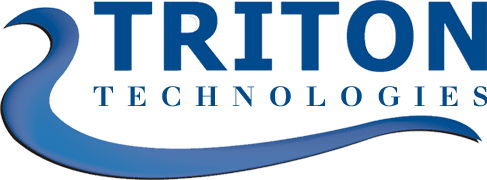As we approach the end of 2023 and look towards 2024, the landscape of technology and cybersecurity is rapidly evolving. Businesses need to stay informed and take proactive steps to safeguard their digital assets. Here’s a concise summary of actionable insights for businesses:
1. Zero Trust Security Model
This model has become increasingly vital as organizations shift to hybrid and remote working environments. It’s essential to implement continuous authentication and verification protocols, ensuring that no entity inside or outside the network is automatically trusted. This approach adds an extra layer of security and minimizes the risk of unauthorized access and potential breaches.
2. Identity Verification and Access Management
More organizations will embrace identity verification in 2024 to ensure the legitimacy of employees, partners, and customers during account onboarding. This is particularly crucial in remote work settings where physical meetings are less frequent. Technologies that compare employee photographs to government documents and provide liveness detection to prevent AI-generated impersonations are expected to see wider adoption.
3. Quantum-Safe Cryptography
With the advancement of quantum computing, traditional encryption methods are at risk. It’s crucial for businesses to prepare for the post-quantum era by adopting quantum-resistant encryption methods. This includes staying informed about the latest developments in quantum-safe cryptographic algorithms to protect sensitive data from quantum attacks.
Explore our Managed Service Offerings
Worcester’s Top Managed Service Provider
4. Operational Technology (OT) Cybersecurity
With the rise in cyberattacks targeting manufacturing and critical infrastructure, modern OT cybersecurity and access management have become essential. This includes implementing Zero Trust access management within these industries to mitigate risks from third-party access and cyber threats.
5. Cloud Security Evolution
As cloud adoption continues to rise, so does the need for robust cloud security measures. Businesses should focus on securing cloud environments with configurations that prioritize data privacy and compliance. Tools providing visibility into cloud-based assets will be crucial for organizations in 2024.
6. Proactive Security Tools and Technology
Businesses should invest more in proactive security tools to better detect vulnerabilities and security gaps. Risk-based vulnerability management, attack surface management, and security posture tools are some technologies to consider for proactive defense.
7. Regulatory Compliance and Privacy Laws
With stringent privacy regulations like the California Consumer Privacy Act (CCPA) and the Data Care Act of 2023, businesses must adhere to a myriad of compliance standards. This emphasizes the importance of a well-rounded cybersecurity strategy that encompasses legal and regulatory adherence.
Discover Our Compliance Management Solutions
Worcester’s Leading Provider of Compliance Services
8. Misconfigurations and Configuration Management
Misconfigurations in network and security settings can lead to vulnerabilities. Businesses should follow a framework for security-focused configuration management, including planning, implementing, controlling, and monitoring configurations. This helps in maintaining secure and efficient network and system operations.
9. Vendor Cyber Risk Management
The security of third-party vendors is a critical aspect to consider. Organizations should create security checklists for vendors and consider third-party security evaluations before engaging in business partnerships.
10. . Cyber Insurance as a Risk Management Tool
With the rising incidence of cyberattacks, cyber insurance has become a crucial part of risk management strategies. This helps mitigate financial risks associated with cyber threats. However, businesses should be aware of the increasing cyber insurance premiums and the factors that might influence the cost and availability of these policies.
In conclusion, businesses need to stay agile and informed in the face of these evolving challenges. Implementing robust cybersecurity measures, staying compliant with emerging regulations, and managing third-party risks are key to maintaining security in the digital age.
Discover our IT Solutions for Your Industry
Worcester’s Top Managed Service Provider



